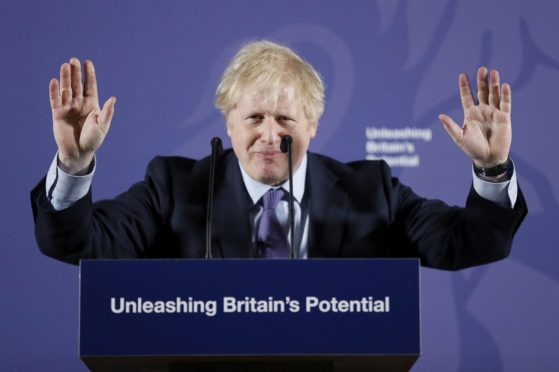I had a thoroughly enjoyable day out on Saturday in the new post-EU world, and it all started with a great read of a high-quality local newspaper on the train – The P&J for the avoidance of doubt.
The Flying Pigs guys did a great job of taking the proverbial out of Brexit and the various types of voices on it. While it was a satirical piece, it was very funny because it is exactly what you actually hear people saying.
I didn’t watch Boris doing a “State of the Nation” address so I couldn’t tell you if it was hopeless or rousing. I was actually busy watching the transfer window slam shut in the English Premier League while listening to BBC Sportsound talking about Scottish transfers.
That type of trade seemed more current, real and exciting, especially when it involves trade with Venezuela (sorry, a footballing reference).
So the whole event on January 31 2020 with the removal of EU flags (or not), a new 50 pence piece and MEPs leaving Brussels just passed me by.
Indeed, one of the Flying Pig pieces reminded me of the comparison to the Millennium Bug – it came, it went, we forgot. Of course this is a little different as in a practical sense the real Brexit happens to us later when we end the transitional arrangements and exit the EU properly, and then enter a new relationship.
In the run-up to that I will take more of an interest as we all start to look at life after the EU and the associated practical implications.
So looking to the future, will the economy be better or worse? Well, this is where I fear further years of dismal political point-scoring on top of the last three we’ve just experienced.
Economists use something called a “counterfactual” when assessing the benefits or cost of something that will happen. In this case, to understand if Brexit is positive or negative, an economist would work out what would have happened to things such as economic performance if we hadn’t left the EU.
Undertaking that assessment is a purely hypothetical exercise and even people as nerdy as me haven’t worked out a way to actually model what would have really happened. I think doing that would probably require a DeLorean and Marty McFly (time travel).
Post (real) Brexit people such as the Office of National Statistics will continue to monitor how the real economy performs given whatever “deal” is reached with the EU.
Using such real life data, interested stakeholders will then take whatever counterfactual assessment suits them and make hay with that. So, for example, we should expect to see the following:
1 – The SNP saying that if we didn’t have Brexit the Scottish economy would definitely have grown more strongly.
2 – The Labour Party saying if they had negotiated a different Brexit then the economy would have grown more strongly.
3 – The Conservative Party saying that the economy has grown more strongly than if we had stayed in the EU or taken whatever approach Labour would have taken.
As you can see, I am not looking forward to this very much. Now I have thought about building a time machine to help present the truth. I am lucky to have a team of exceptional engineers at my disposal, available to hire, to build a machine and prove which of the above three angles is correct, but fear I don’t have the budget.
With this in mind I decided to take an alternative approach. Faced with any challenge in life the best outcomes are generally achieved by making the most of what we have and being positive.
It would therefore be great if our politicians would take some advice from experts and focus on how to make the best out of where we are now and forget what has just been.
So I did some reading and started in Ireland with an article written by a leading trade expert from InterTradeIreland.
The messages were clear, and she had some solid step-by-step actions to take which I could use in my business. So it seems that for businesses we’ll just follow the right steps, take good advice and get on with it, as the counterfactual doesn’t exist.
The rest of the population at large will do the same. We’ll have to learn to plan ahead for holidays in Europe, work out what new insurances and travel requirements there are and get on with it, as the counterfactual doesn’t exist.
So politicians, it would be great if you could take a leaf out of the rest of society’s book.
Have a look at what you are faced with, listen to some good advice and get on with it, and please ignore the counterfactual, as barely any of the rest of us are really interested.
James Bream was research and policy director at Aberdeen and Grampian Chamber of Commerce and is now general manager of Aberdeen-based Katoni Engineering
